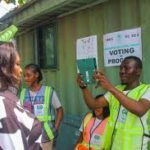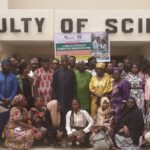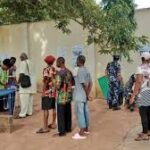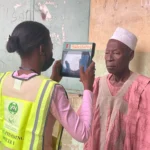Centre inaugurates app on 2023 general election
By Angela Atabo The Policy and Legal Advocacy Centre (PLAC), a civil society organisation, has inaugurated an Electoral Act App aimed at keeping Nigerians abreast with information on the 2023 electoral process. Executive Director PLAC, Clement Nwankwo, said this at the Unveiling and Dissemination of PLAC Electoral Act Web andContinue Reading











